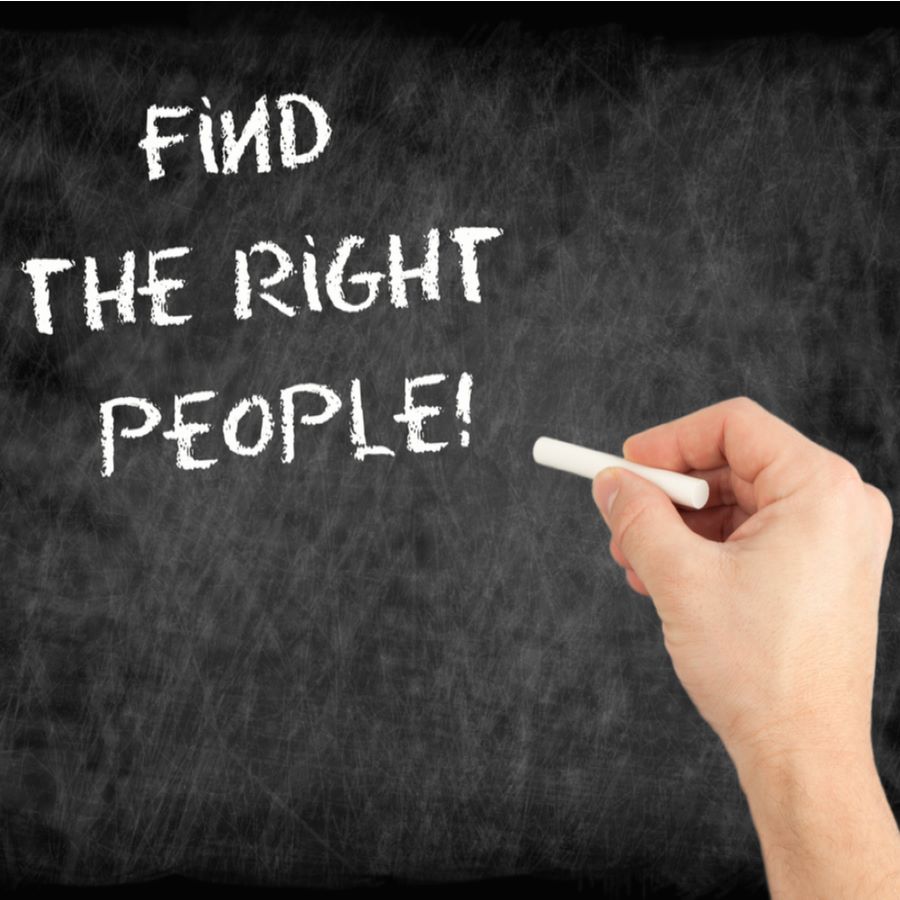01 Jun Re-Thinking the Hiring Process
by Wayne Forster July 2020
I’ve just finished reading Malcolm Gladwell’s latest book Talking With Strangers. One of the main points he makes in the book is that when we meet strangers, the majority of us “default to truth.” In other words, we give the stranger the benefit of doubt that they are telling us the truth. Gladwell says that we must do this in order to function as a society. There has to be some level of trust between people, or society would collapse. Most of the economy, of course, is based on this trust. When a carpenter does some work on my house and gives me a bill when he’s finished, he trusts that I will pay him. When I do consulting work for a company and send them an invoice, I trust that they will pay me.
But Gladwell goes on to say that this “default to truth” also leaves us susceptible to being deceived. Because we give the stranger the benefit of the doubt that they are telling the truth, we are not very good at detecting when they are lying. We may think we can spot the liars, by their facial expressions or body language, but according to the research, we’re actually terrible at it. Gladwell gives the example of Bernie Madoff, the notorious Wall Street trader who operated a Ponzi scheme for years before being exposed. Madoff was personable and convincing, so everyone fell for his lies. Gladwell also cites a research study in which a group of police officers, judges, and therapists correctly identified liars only 54 percent of the time.
Should we even have a face-to-face interview when we are hiring? Should we eliminate this step from the process?
As an HR consultant, when I read Gladwell’s point about default to truth, I immediately thought of the hiring process. One of the steps in most hiring processes is the face-to-face interview. In fact, many recruiters, HR consultants, and hiring managers consider it the most important step in the process. They feel it is essential to look the candidate in the eye and get a sense of their trustworthiness.
But if Gladwell is right (and the research seems to support him), should we even have a face-to-face interview when we are hiring? Should we eliminate this step from the process? If we’re not very good at telling when someone is lying, why give them the opportunity to lie to our face?
I’ve been involved in the hiring of hundreds and hundreds of people over my career. And while I’ve always thought I was a good judge of whether someone was telling the truth, I know there have been many occasions where I’ve found out later that the candidate lied to me. Some have been “little white lies” that wouldn’t have changed the hiring decision, but others have been more significant; and had I known the truth initially, the decision would have been different.
Gladwell says we often get fooled because we rely on facial expressions and body language to try to determine if someone is telling the truth. That’s what we’ve always been told by the experts. Do they make eye contact, or do they look down at the floor when asked a question? Are they fidgeting with their hands, or are they calm? Do they look nervous, or do they come across as confident and self-assured?
The problem with this approach, says Gladwell, is that the good liars know these signals as well. They know they have to make eye contact when they are lying. They know they have to look confident, speak clearly, and remain calm. Many people who are actually telling the truth look like they are lying. They may be so nervous, especially at a job interview, that they don’t make eye contact, they fidget with a pen, or they fumble their words. Then they don’t get the job, when in reality they might have been the best candidate.
Does that mean we eliminate the face-to-face interview from the hiring process? Maybe it does. If we’re so bad at distinguishing between someone who is lying and someone who is telling the truth, maybe we’d be better off not to meet them at all. Especially given that we seem to place such huge significance on the interview in our hiring decision. How, then, without the interview, can we increase our odds of making the right hiring decision?
I come back to Gladwell’s book. In Chapter 2, Gladwell relates a study conducted by a Harvard economist, three computer scientists, and a bail expert examining the bail decisions of judges in New York City courts from 2008 to 2013. Over 554,000 defendants in all. Of those, the study found the human judges released just over 400,000. The study group then built an artificial intelligence system, fed it the same information the prosecutors had given the judges, and asked the computer to make its own list of 400,000 to release on bail. Who made the best decisions? Whose list committed the fewest crimes while out on bail? The results weren’t even close. The computer’s list was 25% less likely to commit a crime while awaiting trial.

Why the huge difference? Because the computer never met the individuals face-to-face, and relied only on the data. The judges, meanwhile, looked the defendants straight in the eye and tried to determine the character of this stranger before them. And as the results showed, they weren’t very good at it.
Am I suggesting we let computers make our hiring decisions? Not exactly. But I am suggesting we base our hiring decisions more on the facts and less on our “gut feel”. Make our decisions based on how the candidate matches up with the requirements of the position, and not on how they perform at an interview.
If we’re going to effectively assess the candidate’s ability to do the job, we have to know exactly what we want them to do.
The implications to the hiring process of this different approach are significant. It means we have to be very clear on the needs and expectations of the position. If we’re going to effectively assess the candidate’s ability to do the job, we have to know exactly what we want them to do. We also have to do a lot more testing – skills testing, aptitude testing, personality testing, attitude testing. And we have to beef up our data gathering efforts, including more reference checking (as difficult as that can be at times), and more information about the candidate’s past performance, because past performance remains the best predictor of someone’s future performance.
Some might lament that by eliminating the interview we would be taking the human element out of the hiring process. I suggest we would be taking the “subjective” element out of the hiring process, and making a more objective decision. We would be making decisions based on facts, and not on the interview performance of the candidates, or the preferences or biases of the interviewers. Some companies are already moving in that direction, utilizing resume parsing programs to eliminate gender or ethnic bias in the initial screening process. Eliminating the face-to-face interview just takes that approach to the next level.
The bottom line for any recruiter, consultant, or hiring manager is that we want to make the best hiring decision for the organization. If doing away with the interview can help accomplish that, then I’m all for it!



